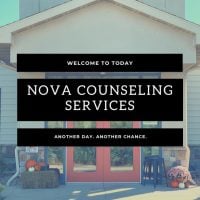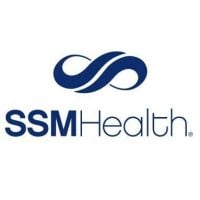
Behavioral Health Division
Drug Rehab Center in Neenah, Wisconsin
- Mental Health
- Dual Diagnosis
The Behavioral Health Division in Neenah, WI specializes in providing evidence-based, client-centered therapy and treatment options for a variety of mental health issues and addictions, with an experienced team of professionals and counselors.
About Behavioral Health Division in Wisconsin
The Behavioral Health Division in Neenah, WI specializes in providing evidence-based, client-centered therapy for a variety of mental health issues and addictions. Their team of experienced professionals and trained counselors is committed to offering care with respect, support and empathy. They offer a variety of treatment methods and levels of care, ranging from traditional therapy to intensive day treatment services depending on the individual's needs. The team is focused on helping each individual to reach their best emotional, psychological and spiritual wellbeing.
The Behavioral Health Division accepts private health insurance and provides counseling and therapy services for dual-diagnosis and mental health issues. Their range of treatments include couples therapy, dialectical behavioral therapy (DBT), family therapy, group therapy, individual therapy, trauma therapy, dual-diagnosis, outpatient treatment (OP) and cognitive behavioral treatment (CBT). They strive to provide comprehensive quality care, designed to meet the individual's specific needs, and are prepared to provide the resources needed for each person to reach their best selves.
Genders
Ages
Modality
Additional
Conditions and Issues Treated
Dual Diagnosis is a specific relationship between two or more disorders that have the same symptoms and can sometimes be treated together. This is used in the treatment planning process when dealing with drug addicts. Dual diagnosis can be viewed as a chronic medical condition that has comorbid psychiatric disorders.
Although addiction and a mental illness may have separate symptoms that are not easy to detect, they often go hand in hand. Many times, drug abuse is a direct result of the mental illness. In other words, treating the addiction will not resolve all of your issues. Unless you also treat the underlying mental illness, you will not be successful in achieving sobriety.
Levels of Care Offered
This center offers a variety of custom treatment tailored to individual recovery. Currently available are Dual-Diagnosis, Outpatient, with additional therapies available as listed below.
An outpatient treatment program is set up to help with alcohol or drug addiction, or a co-occurring disorder. The patient must attend the Wisconsin facility for their therapy and other programs but are able to return home each night. The frequency of mandatory attendance decreases after much of Behavioral Health Division‘s program is complete.
Therapies & Programs
Individual Therapy is a critical component of addiction recovery. Therapists work with patients to identify the root of their addiction and figure out how to better handle the issues that led to them using drugs. Individual Therapy is the one-on-one session where people meet with their therapist. Individual therapy provides a safe space for people to open up and discuss personal and sensitive topics which they may not feel comfortable discussing in a group setting.
Couples therapy at Behavioral Health Division focuses on addiction treatment for the addict and their spouse. The addict’s family, not just the addict, can benefit from this form of therapy. Couples therapy addresses communication problems, trust issues, lack of intimacy, and abuse in intimate relationships. Couples therapy can help rebuild trust between partners, which increases the chances for successful treatment and sustained recovery.
Intimate relationships can be damaged during addiction, and professional help may be necessary to rebuild the often destroyed trust and love. Couples therapy at Behavioral Health Division helps couples improve communication and rebuild trust. Either or both partners will be helped by this treatment administered by professionals. This treatment can also help one or both partners if addiction is the problem.
Family therapy will also help families realize that the addiction is not their fault. For many years, people blamed themselves for an addict’s behavior and felt that they had done something wrong. This is not the case. Addiction is a disease, and it can strike anyone, even if their life seems fine from the outside. It can bring a lot of shame to a family when they have an addict in their midst, but if everyone is open and honest with each other, then they can help everyone stay in recovery.
Group Therapy is utilized by drug treatment centers like Behavioral Health Division to provide the recovering drug addict with a platform to talk about their feelings and experiences. It also provides for an opportunity to learn from other addicts who have successfully overcome their addiction.
Group Therapy is employed in lectures, seminars, or discussion groups (the latter two are typically conducted as “therapy groups”). It is recommended that all group members be recovering addicts for this type of therapy to work (though it does not exclude others with lived experience).
Trauma therapy is a clinical process that helps individuals deal with mental stress often caused by traumatic events. It is generally done for children, teenage victims of sexual assault, and war veterans. The therapist helps the person identify, understand and work through the problem. This is done with the help of talking about it in group or one-on-one counseling sessions. Therapists use relaxation, role-playing, art, and music to help the person open up about what is bothering them.
Dialectical Behavior Therapy (DBT) is used by drug treatment centers across the United States to help drug addicts become sober. DBT combines traditional behavioral treatments with elements from DBT, including dialectics, distress tolerance, and interlocking issues. It is commonly used to treat Borderline Personality Disorder (BPD) along with substance abuse disorders. The four DBT modules are mindfulness, interpersonal effectiveness, emotion regulation, and distress tolerance.
Cognitive behavioral therapy is also a popular service for individuals living with addiction. This type of supportive treatment uses both one-on-one counseling and group sessions to teach addicts how to identify thoughts, behaviors and emotions that might increase their risk of relapse.
These professionals can help addicts develop coping skills for managing stress, improving self-esteem and overcoming triggers. They might also use behavioral therapy to help addicts learn how to avoid cravings and warning signs that could lead them back into addiction.
Therapy can be used as a step-down from inpatient treatment or as the primary method of overcoming an addiction. No matter which option is best for the addict, they will teach important emotional coping techniques, which can make it easier for addicts to get through the tough days.
Payment Options Accepted
For specific insurance or payment methods please contact us.
Is your insurance accepted?
Ask an expert, call (888) 674-0062
Additional Details
Specifics, location, and helpful extra information.
Neenah, Wisconsin 54956 Phone Number(920) 729-2777 Meta DetailsUpdated November 25, 2023
Staff Verified
Behavioral Health Division Patient Reviews
There are no reviews yet. Be the first one to write one.
Neenah, Wisconsin Addiction Information
Wisconsin has some of the highest rates in the United States for both adolescent and adult substance abuse. Since 2009, the state has been experiencing the same escalating rates of drug abuse and addiction as the rest of the country. The major concerns are the misuse of prescription painkillers and the escalating number of deaths due to alcohol-related liver disease.
There is a significant drug addiction issue in Neenah, Wisconsin. Around 25% of people who use drugs eventually become addicted. This means that there is a significant risk for addiction among the population in Neenah, Wisconsin. In 2017, there were 24 drug overdose deaths in Neenah. Opioids were involved in 21 of those deaths. Some of the most common types of treatment include inpatient rehabilitation, outpatient rehabilitation, and 12-step programs.
Treatment in Nearby Cities
- Ladysmith, WI (156.8 mi.)
- Lake Geneva, WI (110.6 mi.)
- Hurley, WI (177.5 mi.)
- Cashton, WI (119.7 mi.)
- Milwaukee, WI (84.3 mi.)
Centers near Behavioral Health Division
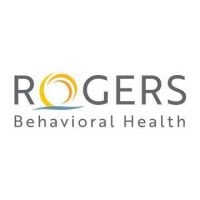
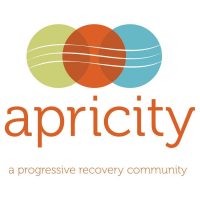
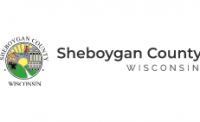
The facility name, logo and brand are the property and registered trademarks of Behavioral Health Division, and are being used for identification and informational purposes only. Use of these names, logos and brands shall not imply endorsement. RehabNow.org is not affiliated with or sponsored by Behavioral Health Division.

